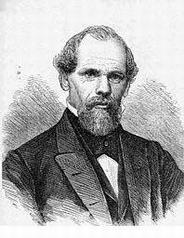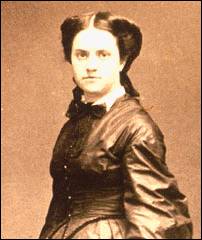-
(单词翻译:双击或拖选)
In 1883, a creative engineer named John Roebling was inspired to build a spectacular[壮观的] bridge connecting New York with Long Island. However bridge-building experts throughout the world thought that this was an impossible feat1 and told Roebling to forget the idea.


Roebling could not ignore the vision he had in his mind of this bridge. After much discussion, he managed to convince his son Washington, an up-and-coming[初崭头角的] engineer, that the bridge in fact could be built.
Working together for the first time, the father and son developed concepts of how it could be accomplished2 and how the obstacles[障碍] could be overcome. They hired their crew and began to build their dream bridge.
The project started well, but when it was only a few months underway a tragic3 accident on the site took the life of John Roebling. Washington was injured, unable to walk or talk or even move.
Everyone had negative[负面的] comments and felt that the project should be scrapped[抛弃] since the Roeblings were the only ones who knew how the bridge could be built.
In spite of his handicap[身体的不便] Washington was never discouraged and still had a burning desire to complete the bridge and his mind was still as sharp as ever.
He tried to inspire and pass on his enthusiasm[激情] to some of his friends, but they were too daunted[气馁的] by the task.
As he lay on his bed in his hospital room, with the sunlight streaming through the windows, a gentle breeze blew the flimsy[薄薄的] white curtains apart and he was able to see the sky and the tops of the trees outside for just a moment.

It seemed that there was a message for him not to give up. Suddenly an idea hit him. All he could do was move one finger and he decided4 to make the best use of it. By moving this, he slowly developed a code of communication with his wife. He touched his wife's arm with that finger, indicating to her that he wanted her to call the engineers again. Then he used the same method of tapping her arm to tell the engineers what to do.

For 13 years Washington tapped out his instructions with his finger on his wife's arm, until the bridge was finally completed. Today the spectacular Brooklyn Bridge stands in all its glory as a tribute to the triumph of one man's indomitable[不屈不挠的] spirit and his determination[坚定] not to be defeated by circumstances.


Roebling could not ignore the vision he had in his mind of this bridge. After much discussion, he managed to convince his son Washington, an up-and-coming[初崭头角的] engineer, that the bridge in fact could be built.
Working together for the first time, the father and son developed concepts of how it could be accomplished2 and how the obstacles[障碍] could be overcome. They hired their crew and began to build their dream bridge.
The project started well, but when it was only a few months underway a tragic3 accident on the site took the life of John Roebling. Washington was injured, unable to walk or talk or even move.
Everyone had negative[负面的] comments and felt that the project should be scrapped[抛弃] since the Roeblings were the only ones who knew how the bridge could be built.
In spite of his handicap[身体的不便] Washington was never discouraged and still had a burning desire to complete the bridge and his mind was still as sharp as ever.
He tried to inspire and pass on his enthusiasm[激情] to some of his friends, but they were too daunted[气馁的] by the task.
As he lay on his bed in his hospital room, with the sunlight streaming through the windows, a gentle breeze blew the flimsy[薄薄的] white curtains apart and he was able to see the sky and the tops of the trees outside for just a moment.

It seemed that there was a message for him not to give up. Suddenly an idea hit him. All he could do was move one finger and he decided4 to make the best use of it. By moving this, he slowly developed a code of communication with his wife. He touched his wife's arm with that finger, indicating to her that he wanted her to call the engineers again. Then he used the same method of tapping her arm to tell the engineers what to do.

For 13 years Washington tapped out his instructions with his finger on his wife's arm, until the bridge was finally completed. Today the spectacular Brooklyn Bridge stands in all its glory as a tribute to the triumph of one man's indomitable[不屈不挠的] spirit and his determination[坚定] not to be defeated by circumstances.
点击 收听单词发音
收听单词发音
 收听单词发音
收听单词发音
1
feat

|
|
| n.功绩;武艺,技艺;adj.灵巧的,漂亮的,合适的 | |
参考例句: |
|
|
|
2
accomplished

|
|
| adj.有才艺的;有造诣的;达到了的 | |
参考例句: |
|
|
|
3
tragic

|
|
| adj.悲剧的,悲剧性的,悲惨的 | |
参考例句: |
|
|
|
4
decided

|
|
| adj.决定了的,坚决的;明显的,明确的 | |
参考例句: |
|
|
|

















